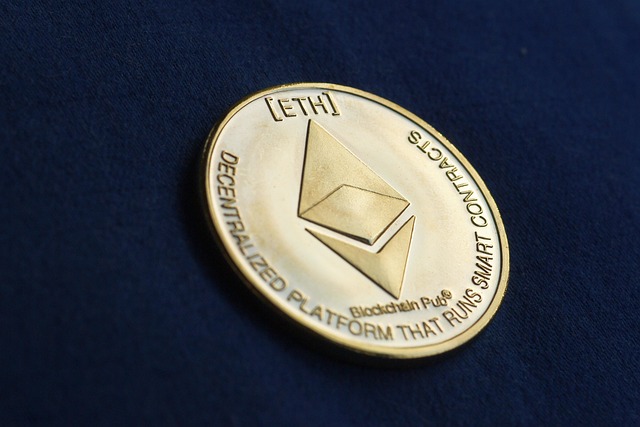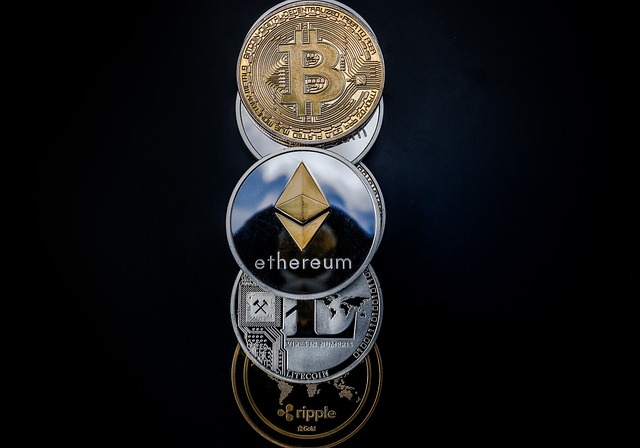Decentralized Finance Company: Defining Its Purpose
Decentralized Finance Company: Defining Its Purpose

What is a Decentralized Finance Company?
Decentralized Finance companies, often referred to as DeFi companies, are a recent innovation in the financial industry. They aim to create a system where financial services can be accessed and conducted without the need for intermediaries such as banks or traditional financial institutions. What sets them apart is their utilization of blockchain technology, which ensures transparency, security, and efficiency.
The defining characteristic of a DeFi company is its decentralization. Instead of relying on a single central authority, transactions and operations are executed through a network of computers interconnected by a blockchain. This enables peer-to-peer interactions, cutting out middlemen and reducing costs. Additionally, these companies often offer a wide range of services, including lending, borrowing, trading, investing, and more, all accessible through user-friendly platforms and applications. With the potential to reshape the financial landscape, DeFi companies have garnered significant attention and are seen as a disruptive force in the traditional financial sector.
The Evolution of Financial Systems
Financial systems have come a long way from their humble beginnings. In the early days, bartering was the norm, where goods and services were exchanged directly between individuals. As societies grew in complexity, the need for a more efficient means of exchange arose, leading to the birth of currency. Through the use of coins and later paper money, people could now easily trade their goods and services with others, regardless of their immediate needs. This evolution marked a significant step forward in the development of financial systems, as it provided a standardized medium of exchange that simplified transactions and facilitated economic growth.
As time went on, financial systems continued to evolve, adapting to the changing needs and demands of the societies they served. The emergence of banking institutions played a crucial role in this evolution. They provided a safe place for individuals to deposit their money, earning interest on their savings while also offering loans and credit facilities to those in need. This expansion of financial services allowed for increased economic participation, with individuals and businesses having access to funds that could be invested in ventures and projects. Additionally, the introduction of national and international banking systems further enhanced the efficiency and scope of financial interactions, enabling seamless cross-border transactions and the facilitation of global trade.
The Advantages of Decentralized Finance Companies
Decentralized finance companies have garnered significant attention in recent years due to their numerous advantages. One of the main advantages is the elimination of intermediaries, such as banks or brokers, which allows for faster and more efficient transactions. With traditional financial systems, individuals often face delays and high fees when transferring money or making investments. However, decentralized finance companies leverage blockchain technology to enable peer-to-peer transactions, cutting out the need for these intermediaries and facilitating seamless and cost-effective transactions.
Moreover, decentralized finance companies offer greater financial inclusivity. Traditional financial systems are often exclusionary, with strict requirements for access to services, particularly in developing countries. In contrast, decentralized finance companies operate on open protocols and are accessible to anyone with internet connectivity. This opens up opportunities for individuals who are unbanked or underbanked to participate in financial activities, such as accessing loans or investing in assets. Furthermore, decentralized finance can provide improved financial stability for individuals, as it operates on a global scale and is not subject to the limitations imposed by local monetary policies.
How Decentralized Finance Companies Work
Decentralized Finance Companies work by leveraging blockchain technology to create an open and transparent financial ecosystem. They allow users to perform various financial activities, such as lending, borrowing, and trading, without the need for intermediaries like banks or financial institutions. Instead, these transactions are executed through smart contracts, which are self-executing agreements that automatically verify and enforce the terms of the transaction.
One key aspect of how decentralized finance companies work is the concept of peer-to-peer transactions.

Overall, the workings of decentralized finance companies rely on the underlying principles of blockchain technology, including transparency, security, and decentralization. By removing intermediaries and relying on smart contracts, these companies aim to revolutionize the traditional financial system by providing individuals with more control over their financial activities and fostering a more inclusive and accessible financial landscape.
The Role of Blockchain Technology in Decentralized Finance
Blockchain technology plays a pivotal role in the establishment and operation of decentralized finance companies. At its core, blockchain is a distributed ledger that records and verifies transactions across multiple computers, ensuring transparency, security, and immutability. By leveraging this technology, decentralized finance companies are able to eliminate the need for intermediaries, such as banks or brokers, for executing financial transactions.
One key advantage of blockchain technology in decentralized finance is the ability to foster trust and security. Unlike traditional financial systems, where trust is often placed in centralized authorities, blockchain allows for the creation of tamper-proof and verifiable records of transactions. With each transaction being recorded on a decentralized network, the risk of fraud or manipulation is significantly reduced. Moreover, the use of cryptography and consensus mechanisms ensures that the integrity of the data stored on the blockchain is preserved, providing users with a sense of trust and reliability. The role of blockchain technology in decentralized finance is thus instrumental in promoting transparency and security in financial transactions.
Use Cases for Decentralized Finance Companies
Decentralized finance companies have a wide range of practical applications, making them valuable in various industries. One prominent use case is in the realm of lending and borrowing. Traditional financial systems often involve lengthy processes and intermediaries, making it difficult for individuals and businesses to access credit efficiently. However, decentralized finance companies offer a more streamlined and accessible approach to lending and borrowing. Through smart contract protocols, users can directly lend or borrow funds without the need for intermediaries. This not only reduces transaction costs but also opens up opportunities for individuals and businesses with limited access to traditional financial services to secure loans and invest in their goals.
Another promising use case for decentralized finance companies is in the field of cross-border payments. Sending and receiving money across international borders can be costly and time-consuming, with high fees and delays caused by intermediaries. However, by leveraging blockchain technology, decentralized finance companies can enable faster and cheaper cross-border transactions. With the use of stablecoins, which are digital currencies pegged to a stable asset like a fiat currency, individuals and businesses can transfer funds instantly and at significantly lower costs compared to traditional methods. This use case has the potential to revolutionize international trade and remittances, empowering individuals and businesses worldwide to transact seamlessly and efficiently.
• Decentralized finance companies offer a streamlined and accessible approach to lending and borrowing
• Smart contract protocols eliminate the need for intermediaries, reducing transaction costs
• Individuals and businesses with limited access to traditional financial services can secure loans more easily
• Decentralized finance companies enable faster and cheaper cross-border payments
• Blockchain technology facilitates instant transfers of funds at significantly lower costs compared to traditional methods
• Stablecoins pegged to fiat currencies make international transactions seamless and efficient
• This use case has the potential to revolutionize international trade and remittances.
Challenges and Risks in the Decentralized Finance Space
Decentralized finance (DeFi) has gained significant attention and popularity in recent years, but it is not without its challenges and risks. One prominent challenge is the inherent complexity of decentralized systems. DeFi platforms are built on blockchain technology, which can be difficult to understand for individuals not familiar with the underlying concepts. This complexity can lead to user errors, such as inputting incorrect transaction details or falling victim to phishing attacks, which can result in the loss of funds.

Another risk associated with decentralized finance is the potential for smart contract vulnerabilities. Smart contracts are self-executing contracts with the terms of the agreement directly written into code. While smart contracts promote transparency and eliminate the need for intermediaries, they are not immune to software bugs or coding errors. A single bug in the code can result in significant financial losses or enable malicious actors to exploit vulnerabilities. Regular code audits, rigorous testing, and proper security protocols are crucial to mitigate the risks associated with smart contracts and safeguard users’ funds in the DeFi space.
Regulatory Considerations for Decentralized Finance Companies
When it comes to decentralized finance companies, navigating the regulatory landscape can be a complex task. With the rise of blockchain technology and decentralized systems, governments around the world are still grappling with how to regulate this emerging sector effectively. One of the main challenges lies in striking the right balance between fostering innovation and protecting consumers and investors.
In many jurisdictions, decentralized finance companies operate in a legal gray area. Traditional financial regulations were not designed with these new technologies in mind, leading to uncertainties and potential loopholes. As a result, regulators are now tasked with developing new frameworks and guidelines to address the unique characteristics of decentralized finance.

The Future of Decentralized Finance
In the rapidly evolving landscape of finance, decentralized finance companies are poised to play a significant role in shaping the future. With the rise of blockchain technology and the increasing popularity of cryptocurrencies, these companies are offering innovative solutions that challenge traditional financial institutions. The future of decentralized finance holds great promise, as it has the potential to revolutionize how financial transactions are conducted, empower individuals with greater control over their assets, and enhance financial inclusivity.
One of the key factors contributing to the future success of decentralized finance is its ability to eliminate intermediaries and reduce costs associated with traditional financial systems. By utilizing blockchain technology, transactions can be executed securely and transparently without the need for a centralized authority. This not only streamlines the process but also reduces the fees and time associated with intermediaries. Additionally, decentralized finance opens up opportunities for individuals who may not have access to traditional banking services, allowing them to participate in the global financial ecosystem. As more individuals and businesses embrace decentralized finance, it is likely to disrupt and reshape the financial industry as a whole.
How to Get Started with Decentralized Finance Companies
Getting started with decentralized finance companies may seem overwhelming at first, but with a little bit of research and patience, it’s actually quite straightforward. The first step is to familiarize yourself with the concept of decentralized finance and understand how it differs from traditional financial systems. Decentralized finance, or DeFi for short, refers to the use of blockchain technology to create financial products and services that operate without the need for intermediaries such as banks or brokers. This means that transactions are conducted directly between users, making the process faster, more transparent, and often more cost-effective.
Once you have a basic understanding of DeFi, the next step is to choose a suitable decentralized finance platform to begin your journey. There are several popular platforms available, such as Ethereum, Binance Smart Chain, and Solana, each offering its own unique features and capabilities. It’s important to do your research and assess factors such as user-friendliness, security, transaction fees, and the range of available decentralized applications (dApps). Consider your own needs and preferences, as well as any specific features or services you’re looking for, before deciding on the platform that best suits your requirements.
What is a Decentralized Finance Company?
A decentralized finance company, also known as a DeFi company, is a financial institution that operates on blockchain technology and aims to provide financial services in a decentralized manner.
How have financial systems evolved?
Financial systems have evolved from traditional centralized institutions, like banks, to decentralized finance companies that leverage blockchain technology for increased transparency and accessibility.
What are the advantages of decentralized finance companies?
Decentralized finance companies offer advantages such as transparency, accessibility, lower fees, faster transactions, and the ability to eliminate intermediaries.
How do decentralized finance companies work?
Decentralized finance companies use smart contracts and blockchain technology to automate financial processes, facilitate peer-to-peer transactions, and allow users to directly control their funds without relying on intermediaries.
What is the role of blockchain technology in decentralized finance?
Blockchain technology enables decentralized finance companies to provide secure, transparent, and immutable transactions, removing the need for intermediaries and creating trust through consensus mechanisms.
What are some use cases for decentralized finance companies?
Use cases for decentralized finance companies include lending and borrowing platforms, decentralized exchanges, stablecoin issuance, yield farming, and decentralized insurance.
What are the challenges and risks in the decentralized finance space?
Challenges and risks in the decentralized finance space include smart contract vulnerabilities, regulatory uncertainty, scalability issues, market volatility, and the potential for scams and hacks.
What regulatory considerations should decentralized finance companies be aware of?
Decentralized finance companies should be aware of regulatory considerations such as anti-money laundering (AML) and know your customer (KYC) requirements, securities regulations, tax implications, and compliance with local laws.
What does the future hold for decentralized finance?
The future of decentralized finance looks promising, as it has the potential to reshape the financial industry by increasing financial inclusion, reducing barriers to entry, and enabling a more efficient and transparent financial system.
How can I get started with decentralized finance companies?
To get started with decentralized finance companies, you can begin by researching and understanding different platforms and protocols, setting up a digital wallet, and exploring various DeFi applications such as lending, staking, or trading. Just remember to do your due diligence and start with smaller investments until you feel comfortable navigating the decentralized finance space.
Todays Featured Product:
Buy, exchange and grow your crypto securely with a Ledger hardware wallet, combined with the Ledger Live app. It’s never been easier to keep your crypto safe and accessible. Buy direct from Ledger.com and get todays Special Offers Here.




